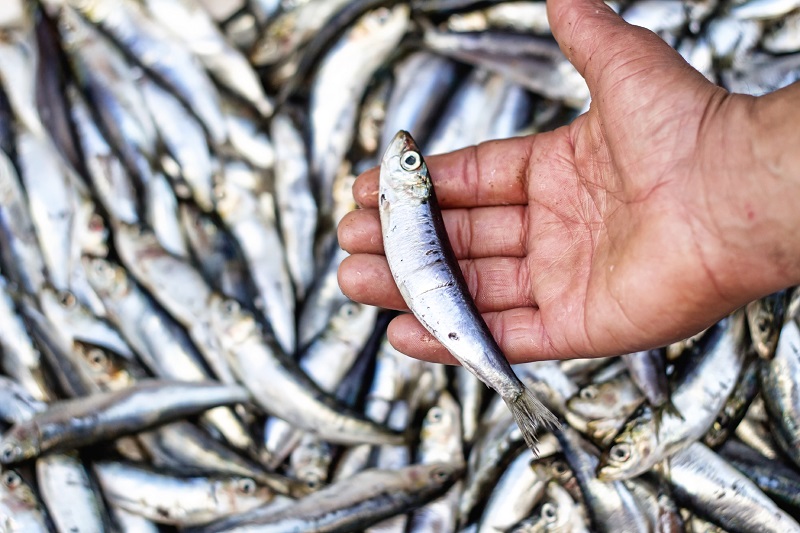With the recent success of both Blue Planet II and ‘Veganuary’, now seems like a more salient time than ever to discuss how to make our fish-buying habits sustainable. For those who turned their Januarys into ‘Veganuarys’ last month, this may have been a long and painful experience for some, or an eye-opening and transformative one for others. Either way, there is no denying that the questions raised by veganism do force us to be more conscious of our consumption behaviours and that there is no doubt that our dietary choices present a great method for mobilising social and environmental power.
Understandably, the most sustainable way to consume fish is to not buy or eat it at all. Though, when it comes to taking action, the net of sustainability should be cast wide. Committing to veganism and vegetarianism is an inconceivable and off-putting approach for many. Given 98% of Britons are currently estimated to eat an omnivorous diet, it’s probably not a socially sustainable answer to an environmental sustainability problem. The binary discourse that is shaped by the vegan debate can be exclusivist, often leading many non-partakers to adopt the ‘screw it’ attitude: not bothering to consume in a mindful and moderate way because if you’re going to take the more destructive path you may as well be all in! However, this is a short-sighted way of viewing our consumer powers and fails to recognise the impact of our decision-making. If we’re going to eat fish it goes a long way to make sure we’re doing it responsibly, by re-thinking our buying habits and putting in a little more thought when food shopping.
Part of the problem with making sustainable shopping decisions lies in the unclear labelling system. There is currently no scheme to delineate which species of fish, and the fisheries they originate from, are sustainable. The Marine Stewardship Council’s (MSC) blue labelling system certifies over 20,000 global seafood products as sustainable. Though Greenpeace suggest the MSC system is not selective enough, awarding many unsustainable fisheries the label simply for ‘taking steps’ to improve their methods. So, should we ignore MSC? Maybe. It seems responsible to do a little more research into the MSC certified products we regularly buy, or, to at least take MSC as an absolute minimum standard and certainly to ignore items which have not gained their approval.
Another fishing myth uncovered by Greenpeace is the farmed fish solution. Unfortunately, this does not necessarily present the answer to our sustainability woes and tends to only exacerbate the problem. Greenpeace highlights that breeding species and the use of wild stocks for farmed fish-meal puts increasing pressure on the marine environment. In addition, farmed fish diseases can spread to wild ecosystems, further depleting populations.
So, when trying to make sustainable decisions, it seems that the two things to look out for are: (1) the species and (2) the method. A number of organisations have published sustainable fish lists to show consumers which types of fish are the most numerous. This generally means choosing less popular species such as tuna. In the case of Britain’s favourites, haddock and cod, it’s not all doom and gloom, but we are advised to take extra care when considering which stocks these fish are drawn from. For example, when choosing cod, look for stocks from Iceland or the North Sea. ‘Line’ or ‘pole’ caught are easy markers of sustainable fishing methods.
Choosing the right outlets can make shopping for sustainable fish much easier. Supermarkets tend to have highly variable standards given the variety of budgets they accommodate, but Marks and Spencer’s consistently come out on top, and offer full disclosure about their sourcing. Going independent is always a more responsible method of consumption regardless of what you’re buying, particularly when it comes to food. In Leeds, Ramsdens at Kirkgate Market, as well as Cardigan Fish Bar are both committed to sustainability. Local company KC Caviar have also developed ethical caviar using innovative and responsible egg-extraction methods. Though a little out of the student budget (starting from £94.50), it’s another sign of novel ecological developments in the fish industry.
When it comes to purchasing power, we are not helpless. Whether we choose to eat fish or cast it aside, our decisions have direct implications on the sustainability of the ecosystem. Being more considerate of our buying habits and educating ourselves is important if we’re going to become more mindful consumers. This may mean enjoying fish dinners a little less often, though all the ecological studies show us that it’ll be well worth the sacrifice.
Sarah Mortimore
(Image: Green and Growing)

